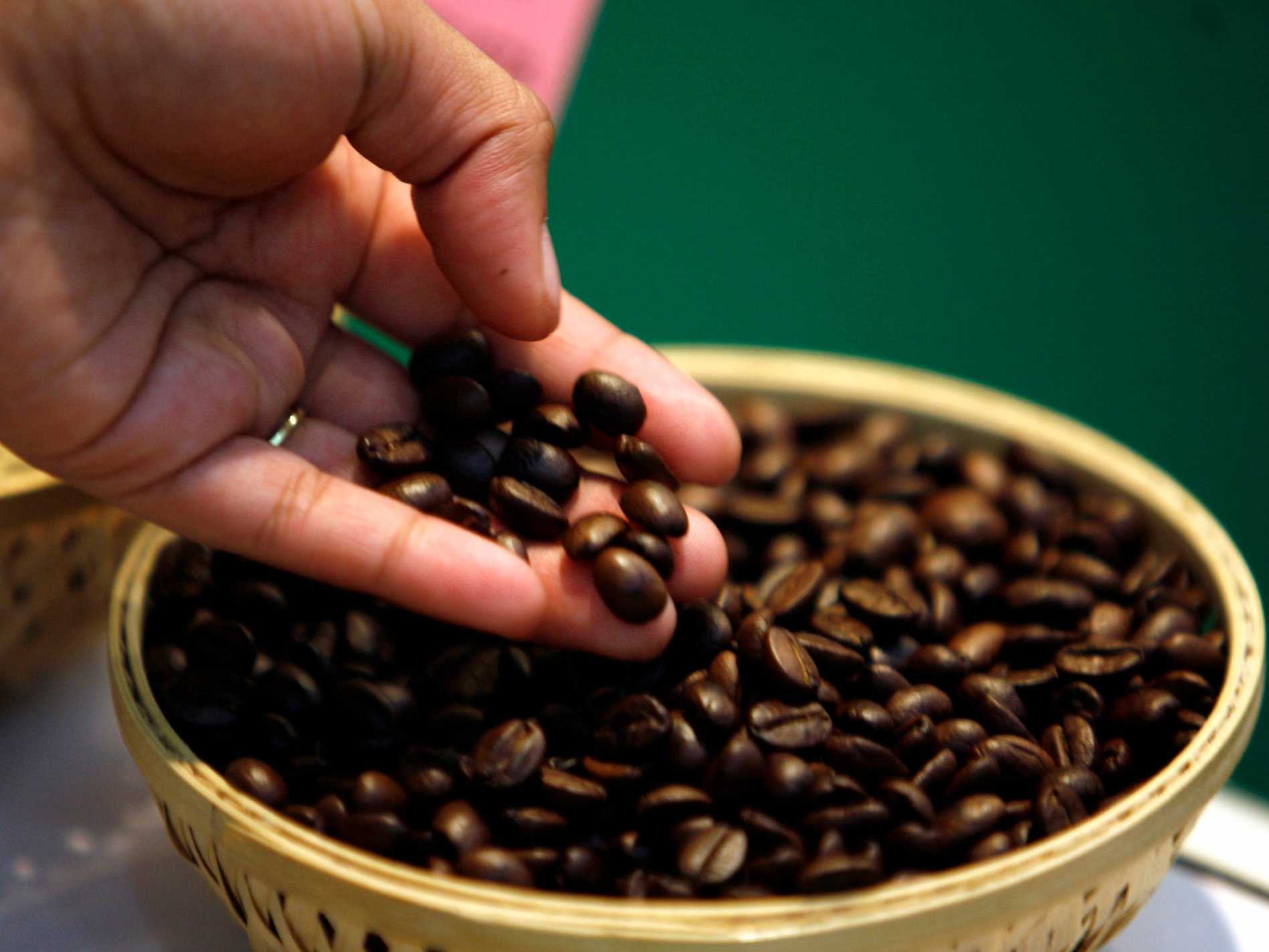Every nose is familiar with the wonderful aroma of coffee beans. Non-coffee drinkers and coffee lovers alike can appreciate the smooth, rich smell of fresh roasted coffee. Even as you read this many of you are activating the amygdala and hippocampus areas of your brain that will recall past coffee smells and associated memories.
Well today we are going to combine the brain, the thyroid and coffee beans into a nice step-by-step process of growing and brewing our bodies very own free trade coffee we will call “Free T3”.
Harvesting Coffee Beans: How the Thyroid Works
Just as any good coffee bean must be grown, so must your thyroid hormone. A structure in the brain called the hypothalamus releases thyrotrophin-releasing hormone (TRH) which causes the pituitary gland to release thyroid stimulating hormone (TSH).
This then in turn will make the thyroid produce T4 and T3. Don’t get all caught up in all of the long words…for now just think of thyroid stimulating hormone (TSH) as “miracle grow”, which stimulates the thyroid gland to produce coffee beans that we call T4. In summary, TSH = Miracle Grow, and T4 = coffee beans!
So now we have our coffee beans (T4), but does that mean we have coffee? Absolutely not, and surprisingly enough, we are still a few steps from having that fresh cup of java juice. When the thyroid produces the bean 93% of its overall production is in the form of T4 and 7% is T3.
Just like the bean must be ground up, the T4 isn’t useable to the majority of our body and must be converted to T3. Enter the Liver – the body’s own coffee grinder.
As a matter of fact, the Liver is a grinder in every sense of the term. (We will talk about that another day in another blog.) The liver converts nearly 60% of that T4 to T3, but can we still drink it? Nope, really what we have here is coffee grounds.
Brewing Coffee
Here we are with our coffee grounds (T3) and the wafting aroma has every cell in our body just waiting for some fresh brew, but we still have to properly cook it so that our tissues can make use of it, and that’s where our built in cooking mechanisms come into play. Where else would that be other than our digestive system?! So now that we have (T3) we have to convert that into our own special cup of coffee called Free T3.
A majority of the “cooking” process occurs in our large intestine and some in various other tissues. Once the T3 is properly converted, it will then affect every cell in our body!! I’ll say that again slowly one more time to let it sink in – E-V-E-R-Y C-E-L-L! Yes, it’s that important. Just like every nose is keen to the smell of fresh coffee, every cell has to quench its regular thirst of Free T3.
t’s important to remember that in order to have Free T3 coffee, our liver and our digestive system must all be working properly.
We must have proper levels of vitamins, minerals and amino acids in order to have a perfect cup of coffee.
Through this process, the thyroid controls the metabolism and performs all the thyroid functions.
These functions include: controlling breathing, regulating heart rate, body weight, muscle strength, body temperature and cholesterol.
Just as not every coffee Hyperthyroidism vs. Hypothyroidism
bean is created equal, not everyone has the same thyroid activity level. Some people may unfortunately have an overactive or under-active thyroid. This is referred to as hyperthyroidism or hypothyroidism.
Hyperthyroidism is an overactive thyroid that produces too many hormones. Think about your coffee making process resulting in drinking A LOT of coffee. This means that the metabolism speeds up and may cause the heart rate to increase and induce weight loss. It may also result in diarrhea, anxiety, hair loss, and trembling. That’s WAY TOO MUCH COFFEE!!
Hypothyroidism is an under-active thyroid that does not produce enough hormones. What happens when you miss your java? Low thyroid function has a similar affect. Everything slows down; heart rate, metabolism, digestion, weight gain, dry skin, sensitivity to the cold, fatigue, sleeping problems, and muscle/joint pain.
The Hyperthyroidism and Hypothyroidism Myth
When it comes to over functioning and under functioning hormone glands, such as the thyroid, the real underlying issues are rarely just the organ itself. This is a myth that has permeated not only our society but has been the reason that thyroid issues are often mistreated within our medical system.
Anytime we end up with dysfunction in our body, or our coffee growing and brewing process, we need to analyze the whole operation, not just the thyroid. Both coffee making and Free T3 formation rely on many interdependent functions. Again, complete and proper transformation of thyroid hormone begins with the correct level of nutrients and proper function of the liver and digestive system.
Hypothyroidism and Medication
The most impressive and somewhat shocking part of this entire blog is how the medical establishment treats hypothyroidism. Where we’d all think that our medications would be in the form of coffee (Free T3), we are actually being prescribed coffee beans!!!
Try drinking that. This is the reason many of us who are taking medication for our hypothyroid function still feel like we haven’t had our coffee.
That tells us that the problem now, and perhaps the reason we felt this way from the beginning, is because we are lacking vitamins, minerals or proper liver and digestive functions. The correct way to treat Hypothyroidism starts with simple but rarely used testing to find the broken mechanism(s). Here’s to the next cup!!
Read More: http://premiermedgroup.org/services/thyroid/
Summary:
Thyroid produces Coffee Bean (T4)
Liver produces Coffee Grounds (T3)
Digestive System produces Cup of Coffee (Free T3)
Now that you understand the function of the thyroid, you can understand why balance within this gland is imperative to living a happy and healthy lifestyle.














